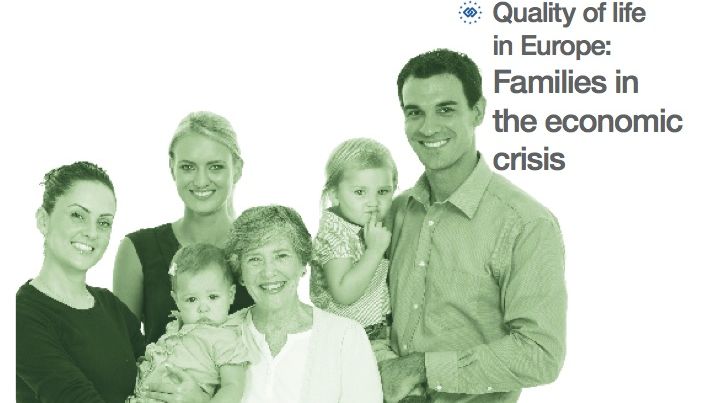
News -
Families feeling the brunt of increasing social inequalities in Europe
(Dublin, Ireland): Getting people who have been recently made redundant back into work as soon as possible must be a policy priority to avoid the risk of disadvantage becoming entrenched. Eurofound publishes a report which looks at families in the economic crisis, and outlines relevant kinds of policies and services that can best protect families from the risks of poverty and social exclusion, in such areas as social protection benefits, housing, childcare and healthcare. The findings will be presented at a Greek EU Presidency conference in Athens, Greece, today 29 April.
European families are facing greater difficulty making ends meet than before the crisis. Those already vulnerable are at increased risk of poverty and social exclusion. Growing inequality is also apparent between families: whether a child lives in poverty depends, in part, on the type of family in which it grows up.
There is considerable variation in the proportion of households that have children: over 40% in Ireland and Romania, but below 25% in Germany. Among households with children the proportion of lone-parent households is highest in Denmark (21%, but this is just 5% of all households) and Ireland (20%, or 9% of all households). It is lowest in Greece and Croatia (4% of households with children, or 1% of all households). Latvia has the highest rate of lone-parent households overall (29%), followed by Ireland (26%). In 2005 the UK was among the countries with the highest proportion of both lone-parent households (within all households) and the highest share of children living with a lone parent (among all children); in 2011, both of these measures had decreased significantly.
Eurofound research shows that families in jobless households are the most likely to have difficulties making ends meet - between 20% and 25% of working lone parents are having difficulty making ends meet, with big differences between countries. However, it also shows that jobless couple families more often have difficulties than lone parents. Jobless families were significantly more likely to face economic difficulties in 2011 than in 2007. Dual-earner families are the least likely to have difficulty making ends meet and, interestingly, there has been no significant worsening for this group since the crisis, the deterioration being most marked in families already in a vulnerable situation.
This also affects housing insecurity. The research found that some 17% of jobless families fear they might need to move in the next year, as they can no longer afford to live in their present home. Since 2007 this rate increased by six percent (6%) for jobless lone parents and by nine percent (9%) for jobless couple families.
The conflict of work and family life has increased in all types of households with children. Lone parents working full time experience work–life conflict most often.
Overall, the report found that social exclusion in the European Union increased from 10% to 12% between 2007 and 2011.

